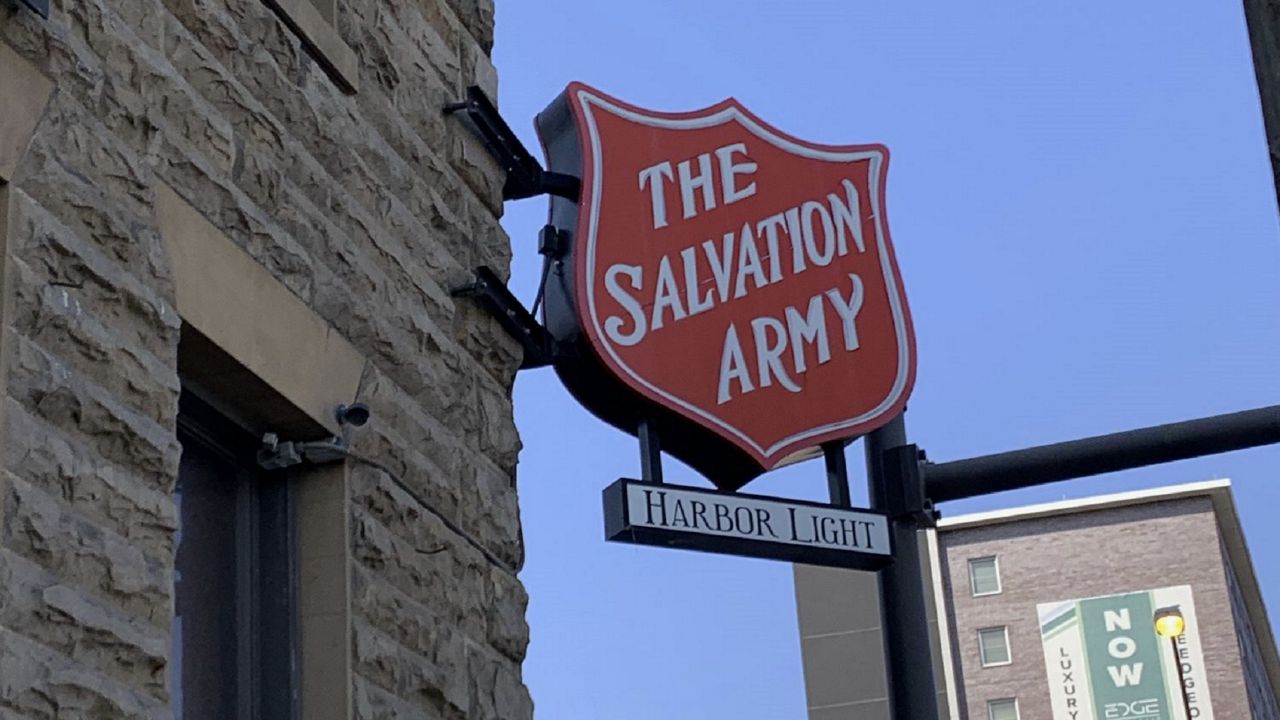CLEVELAND — Negative repercussions of the pandemic will be felt for years to come, but human trafficking agencies will likely begin to feel the impact by spring, said Beau Hill, director of the Salvation Army of Cleveland’s Harbor Light Complex.
With donations and funding already low, the outlook is grim, Hill said.
“I'm scared what the social service system as a whole will look like,” he said.
Human trafficking was on the rise before the pandemic hit, but has escalated, especially online, agencies report.
For human traffickers, widespread economic instability brought on by the pandemic is fueling housing insecurity and homelessness for millions of people, and creating a ripe field.
But the need isn’t apparent right away, Hill said.
“The thing that is hard for people to comprehend is that oftentimes when there are challenges, housing crises and things like that, there is a delay before people come to see us,” he said. “They have to exhaust their resources.”
The International Labor Organization estimated more than 40 million people had become victims of modern slavery in 2016, trafficked for sexual exploitation, forced labor, forced marriage, and other purposes.
Harbor Light has provided a safe place for trafficking survivors in the Cleveland area since 2005, adding dedicated staff to its six-bed residential program in 2016, which later grew to 12 beds, Hill said.
The price tag for Harbor Light to operate the human trafficking component is about $500,000 a year, Hill said, and apart from occasional foundation grants and Salvation Army funding, a dedicated funding source has not materialized.
Harbor Light has been turned down three times for operational funding from the federal Victims of Crime Act, he said.
The program grew briefly in 2016 with support from former Cleveland Browns Head Coach Hugh Jackson, who Hill said “has a heart for human trafficking survivors.”
But an annual donation and plans to work in partnership with the Hugh Jackson Foundation to raise funds for survivors ended when Jackson left the Browns, Hill said.
The facility was forced to return to six beds, and the dedicated staff redirected to other populations in the complex, he said.
Now, when the need exceeds capacity, Hill works with local shelters.
He likened the complex financial situation to a retirement account during tough times.
“Essentially, what we've had to do is, we've had to draw down those reserves, or in my world, we're in crisis mode,” he said. “We have to use our retirement account in order to keep things going. And so, that's where we are at right now.”
People can unwittingly become victims of trafficking just trying to survive the pandemic, said Summit County Sheriff Inspector Bill Holland.
“They're in dire need of money so they turned to prostitution or some sort of day labor, which can turn into trafficking,” Holland said. “With job loss, people that might be hurting financially or unstable when it comes to housing, they might turn to that type of work, which could lead to human trafficking. We've seen an increase in that.”
The sheriff’s office collaborates with several local agencies in the Summit County Collaborative Against Human Trafficking.
In January, the human trafficking collaborative launched a dedicated law enforcement line that runs 24/7 to respond quickly to human trafficking in Summit County.
The same month, in two sting operations, Summit County law enforcement arrested 19 traffickers after posing online as customers of websites that exploit victims for sex.
In 2019, the Polaris Project U.S. National Human Trafficking Hotline identified 22,326 human trafficking victims - mostly minors and immigrants – in 11,500 trafficking situations, which is nearly a 20% jump from 2018.
In Ohio, last year, 890 victims, 172 traffickers and 69 trafficking operations were identified through the hotline, according to Polaris’ Ohio Spotlight report, which puts Ohio among the top five states generating calls to the hotline.
But Polaris also warns those numbers are low because many victims don’t know about the hotline’s existence and some racial and ethnic groups underreport trafficking.
With the pandemic underway, confinement and travel restrictions have caused increased abuses of trafficking victims, slowed or halted the rescue of thousands of victims, and delayed the criminal justice system, the Global Initiative Against Transnational Organized Crime (GIAOC) reports.
Information gleaned from the Polaris hotline also reveals new forms of trafficking have emerged because of the pandemic.
In some cases, landlords exploit mostly female tenants who can’t pay rent, while girls in poor and rural areas are placed in forced marriages to help lessen the family’s hardship from reduced income.
With many driven to the internet during quarantine, the dark web is also active, officials said.
And hosting chats between communities of organized criminal cybersex-trafficking groups who are seeking ways to take advantage of children and teens who spend their days online while schools are closed, GIAOC reports.
For more information, contact Harbor Light at 216-781-3773.
To report human trafficking in Summit County, call the hotline at 330-252-2614.



